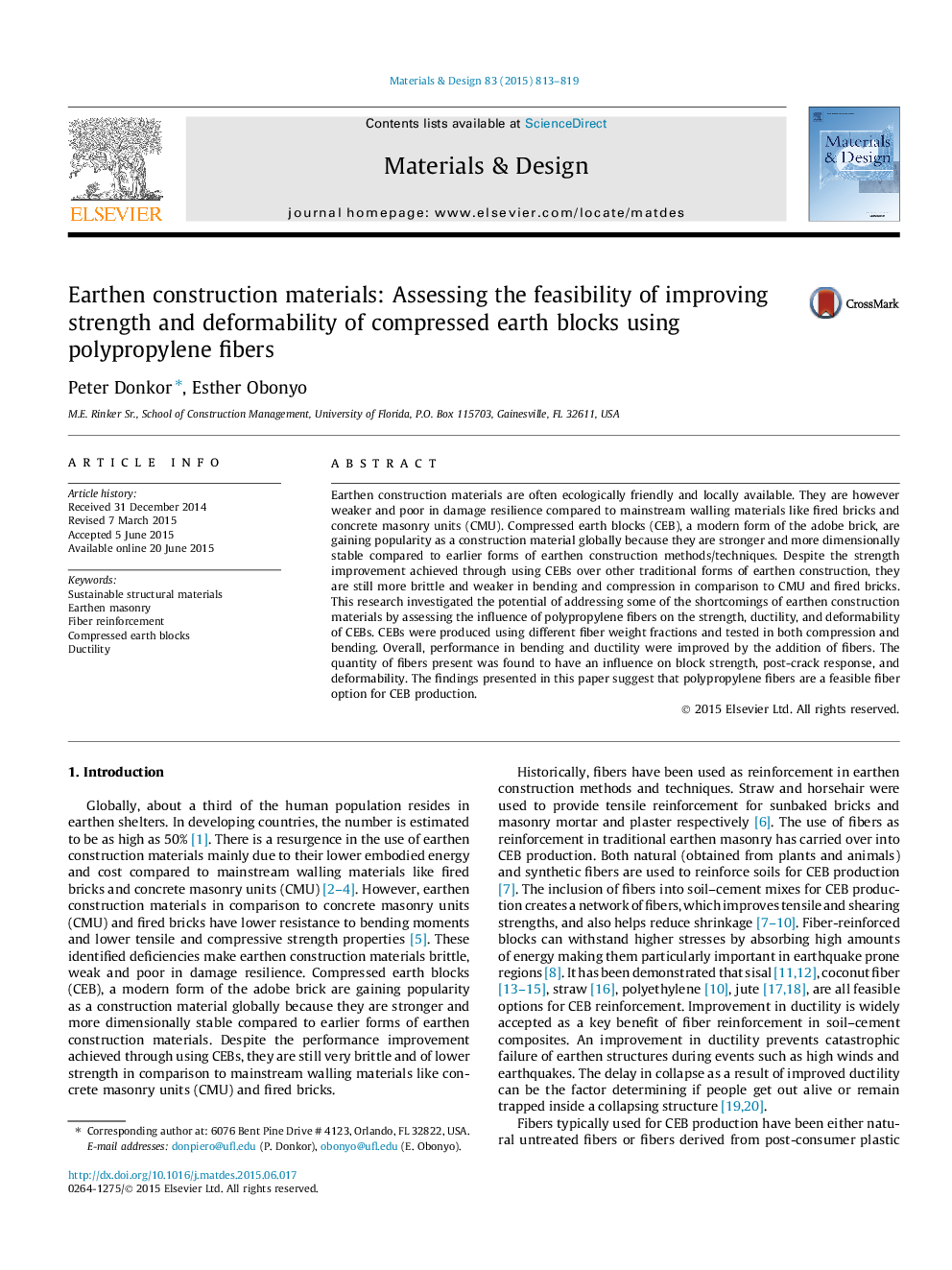| Article ID | Journal | Published Year | Pages | File Type |
|---|---|---|---|---|
| 828496 | Materials & Design | 2015 | 7 Pages |
•The polypropylene fibers improved ductility and post-crack performance of the blocks.•Fiber weight fraction influenced block strength properties and deformability.•Strength began to decline as fiber weight fraction exceeded 0.6%.
Earthen construction materials are often ecologically friendly and locally available. They are however weaker and poor in damage resilience compared to mainstream walling materials like fired bricks and concrete masonry units (CMU). Compressed earth blocks (CEB), a modern form of the adobe brick, are gaining popularity as a construction material globally because they are stronger and more dimensionally stable compared to earlier forms of earthen construction methods/techniques. Despite the strength improvement achieved through using CEBs over other traditional forms of earthen construction, they are still more brittle and weaker in bending and compression in comparison to CMU and fired bricks. This research investigated the potential of addressing some of the shortcomings of earthen construction materials by assessing the influence of polypropylene fibers on the strength, ductility, and deformability of CEBs. CEBs were produced using different fiber weight fractions and tested in both compression and bending. Overall, performance in bending and ductility were improved by the addition of fibers. The quantity of fibers present was found to have an influence on block strength, post-crack response, and deformability. The findings presented in this paper suggest that polypropylene fibers are a feasible fiber option for CEB production.
Graphical abstractFigure optionsDownload full-size imageDownload as PowerPoint slide
